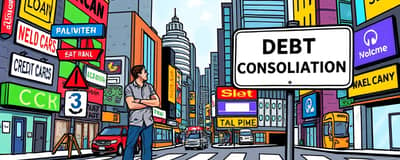Paying Off Debt: 6 Common Mistakes to Avoid

Paying off debt can be a daunting task, but it’s essential for achieving financial stability and peace of mind. Many people find themselves in a cycle of debt that seems impossible to escape, but understanding common pitfalls can be the first step toward rectifying the situation. In this article, we’ll explore six mistakes to avoid when working to pay off your debt, which can save you time, money, and stress.
By recognizing and avoiding these errors, you’ll be better equipped to create a solid plan for managing and ultimately eliminating your debt. Let’s dive into the details and pave the way for a more financially secure future.
1. Not Having a Plan
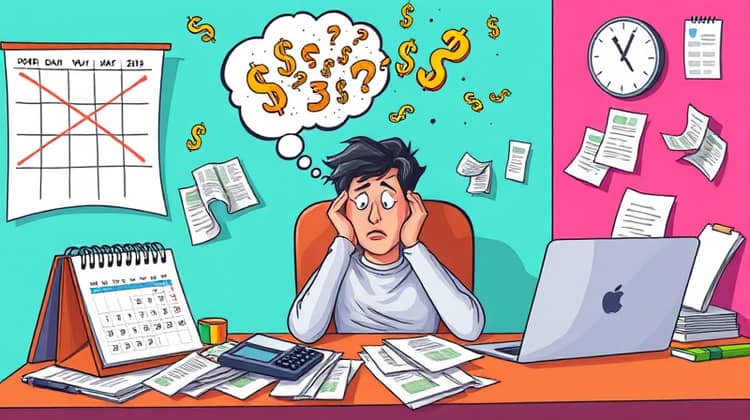
One of the biggest mistakes people make when trying to pay off debt is not having a well-thought-out plan. Without a clear understanding of your financial situation, it becomes difficult to identify which debts to prioritize and how to allocate your resources effectively.
A plan allows for measurable goals, which can keep you motivated and focused on what needs to be done. It can include timelines, debt payment amounts, and strategies for reducing monthly expenses to help put more money toward debt repayment.
- Not identifying what debts are outstanding
- Failing to create a budget that includes debt repayment
- Underestimating the total time required to pay off debts
Creating a plan is the first step in your journey to becoming debt-free. By clearly outlining your debts and financial goals, you can keep yourself accountable and measure your progress as you work through your repayment strategy.
2. Ignoring High-Interest Debts
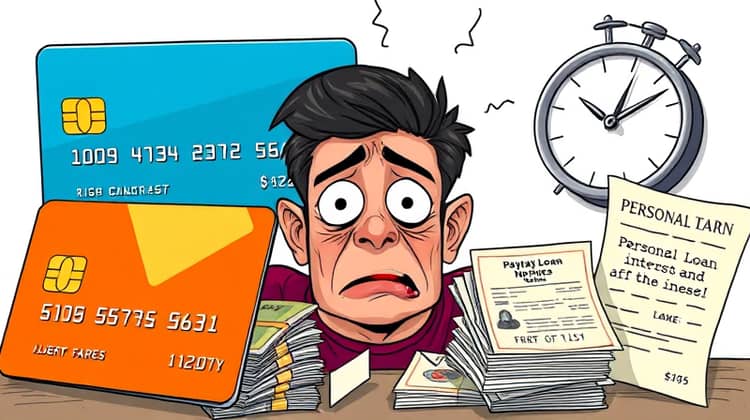
Ignoring high-interest debts can be a costly mistake. It’s crucial to understand that these types of debts carry a heavier financial burden due to accumulating interest, which can make it more challenging to pay off over time.
- Credit card debt with high-interest rates
- Payday loans that accumulate quickly
- Personal loans with unfavorable terms
By prioritizing high-interest debts and attempting to pay them off first, you can reduce the total interest paid over time and free up more funds for other debts.
3. Co-Signing for Others

Co-signing for loans can seem like a supportive act toward family or friends, but it can also lead to significant financial repercussions. When you co-sign, you agree to be responsible for the debt if the primary borrower fails to make payments, which could escalate your own debt situation.
If the individual you co-signed for defaults on their loan, you might find yourself liable for their debt, damaging your credit score and financial stability. In many cases, this added financial obligation can become overwhelming and unmanageable.
- Assuming a friend's financial literacy without verification
- Not considering the impact on your own debt-to-income ratio
- Failing to have an exit strategy if things go wrong
Before co-signing any loan, carefully consider the consequences and evaluate whether it is wise to take on such responsibility. It may sometimes be better to offer support in other ways, such as helping them budget or find alternative loan options.
4. Closing Credit Accounts
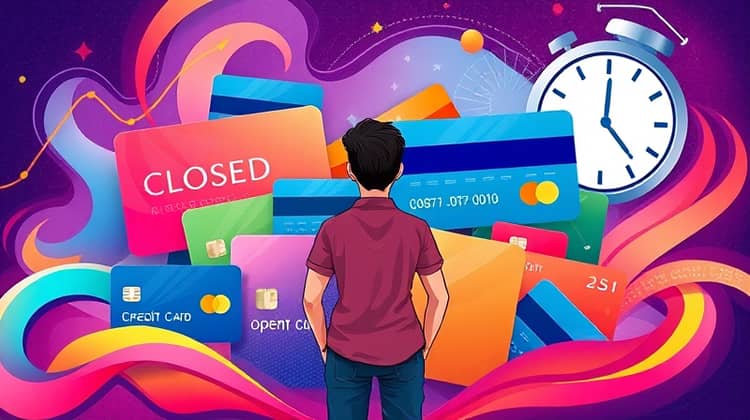
Closing old credit accounts may seem like a surefire way to simplify your finances, but it can negatively affect your credit score. Credit history length plays a crucial role in determining your credit score, and closing older accounts can shorten your credit history, which could hurt your score.
Moreover, when you close an account, you reduce your total available credit, which can increase your credit utilization ratio and potentially lead to a drop in your score as well. It's often wiser to keep old, unused accounts open, even if you’re not actively using them.
- Reducing available credit without reason
- Failing to understand the impact on your credit score
- Closing joints accounts without consulting partners
Instead of closing accounts, consider managing your old accounts responsibly by keeping them open and occasionally using them to maintain your credit utilization in check. Understanding your credit profile is vital in maintaining a healthy credit score.
5. Using New Debt to Roll Over Old Debt
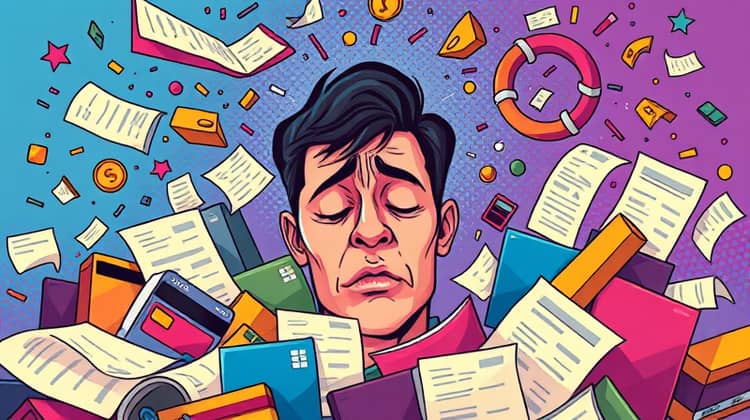
Using new debt, such as personal loans or credit cards, to pay off older debt can create a cycle of debt that becomes increasingly difficult to manage. This approach often leads to overspending and a false sense of security, believing that new debt will solve your financial issues.
However, borrowing more money only prolongs your payment process and can even exacerbate existing financial problems if you're not addressing the root causes of your debt.
- Taking out a personal loan to pay credit card debt
- Using a balance transfer credit card excessively
- Believing that new debt can be a quick fix
To break the cycle, focus on developing a sustainable debt repayment strategy that prioritizes existing debt rather than creating new liabilities. Facing your debts head-on is essential for achieving lasting financial health.
6. Using Savings to Pay Down Debt
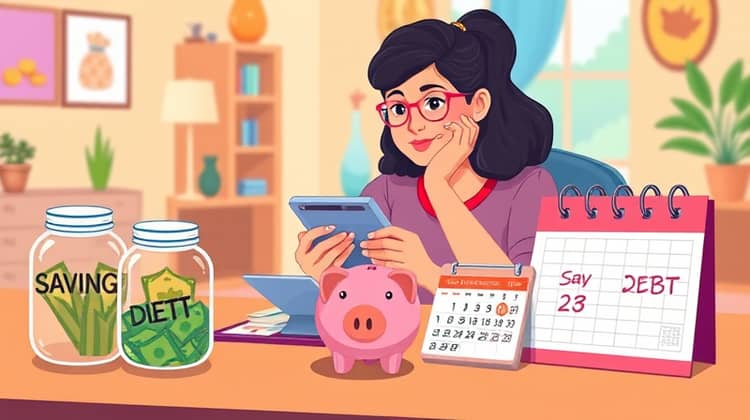
While using savings to pay off debt might seem like a sensible approach, it can lead to financial vulnerability. By depleting savings, you may find yourself without a financial safety net for emergencies, which could force you back into debt in the future.
Instead of fully draining your savings to pay off debt, consider a balanced approach that maintains some level of savings for unexpected expenses while making consistent payments on your debt.
- Set aside a portion of savings as an emergency fund
- Allocate a manageable amount toward debt repayment each month
- Regularly evaluate and adjust your budget based on your financial needs.
Balancing savings and debt repayment can empower you to tackle your financial obligations while retaining a safety net. A comprehensive approach that integrates both elements can help ensure long-term financial stability and peace of mind.
Conclusion

In conclusion, paying off debt can be a challenging journey, but it doesn't have to be overwhelming. By understanding and avoiding common pitfalls, such as not having a plan or co-signing for others, you can significantly improve your chances of successfully managing your debts.
Establishing a solid strategy, prioritizing high-interest debts, and maintaining a healthy balance between savings and repayment are critical components to building a secure financial future.



